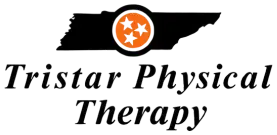Physical therapy is an essential aspect of rehabilitation after an injury or surgery. But did you know that nutrition also plays a vital role in the recovery process? Eating a healthy, balanced diet can help you heal faster, reduce inflammation, and build stronger muscles and bones. In this article, we’ll explore the importance of nutrition in physical therapy and provide a guide on how to fuel your body for optimal recovery.
The Importance of Nutrition in Physical Therapy
Nutrition is critical for recovery and rehabilitation because it provides the necessary nutrients to help repair damaged tissues and build new ones. Eating a well-balanced diet can also help reduce inflammation and improve immune function, which is critical for the healing process. Moreover, proper nutrition can help increase energy levels and improve overall physical and mental health, which can lead to better outcomes during physical therapy.
However, poor nutrition can negatively impact recovery by slowing down the healing process, increasing the risk of infection, and reducing the effectiveness of physical therapy. For instance, a diet high in saturated fats, processed foods, and sugar can cause inflammation and hinder the body’s ability to repair and recover. Therefore, it’s essential to eat a variety of nutrient-dense foods to support the body’s healing process.
Fueling Your Body for Optimal Recovery: A Guide
To fuel your body for optimal recovery during physical therapy, it’s essential to eat a well-balanced diet rich in protein, healthy fats, complex carbohydrates, vitamins, and minerals. Here are some tips to help you get started:
- Eat plenty of protein-rich foods such as lean meats, fish, poultry, beans, nuts, and seeds. Protein is essential for repairing and building new tissues, especially muscles and bones.
- Include healthy fats in your diet, such as olive oil, avocados, nuts, and seeds. These fats are anti-inflammatory and can help reduce pain and swelling.
- Eat complex carbohydrates such as whole grains, fruits, and vegetables. These provide energy for physical activity and can help reduce inflammation.
- Stay hydrated by drinking plenty of water and avoiding sugary drinks. Water is essential for the body’s healing process and can help reduce inflammation.
- Avoid processed foods, sugary snacks, and saturated fats. These can cause inflammation and hinder the body’s ability to repair and recover.
- Consider working with a registered dietitian or nutritionist to create a personalized nutrition plan that meets your specific needs.
By following these guidelines and eating a healthy, balanced diet, you can fuel your body for optimal recovery during physical therapy.
In conclusion, nutrition plays a critical role in the recovery process during physical therapy. Eating a well-balanced diet rich in protein, healthy fats, complex carbohydrates, vitamins, and minerals can help reduce inflammation, increase energy levels, and improve overall physical and mental health. By following the tips outlined in this article, you can fuel your body for optimal recovery and achieve better outcomes during physical therapy.

